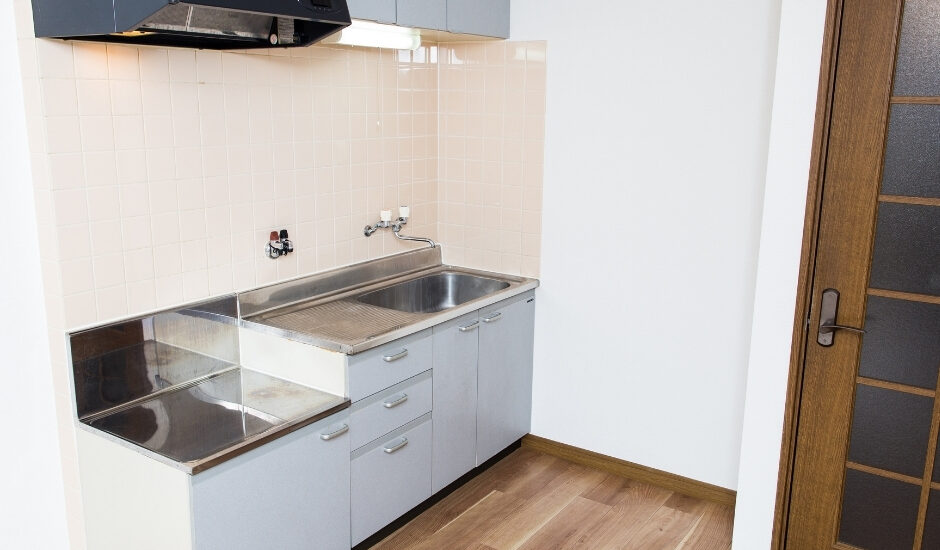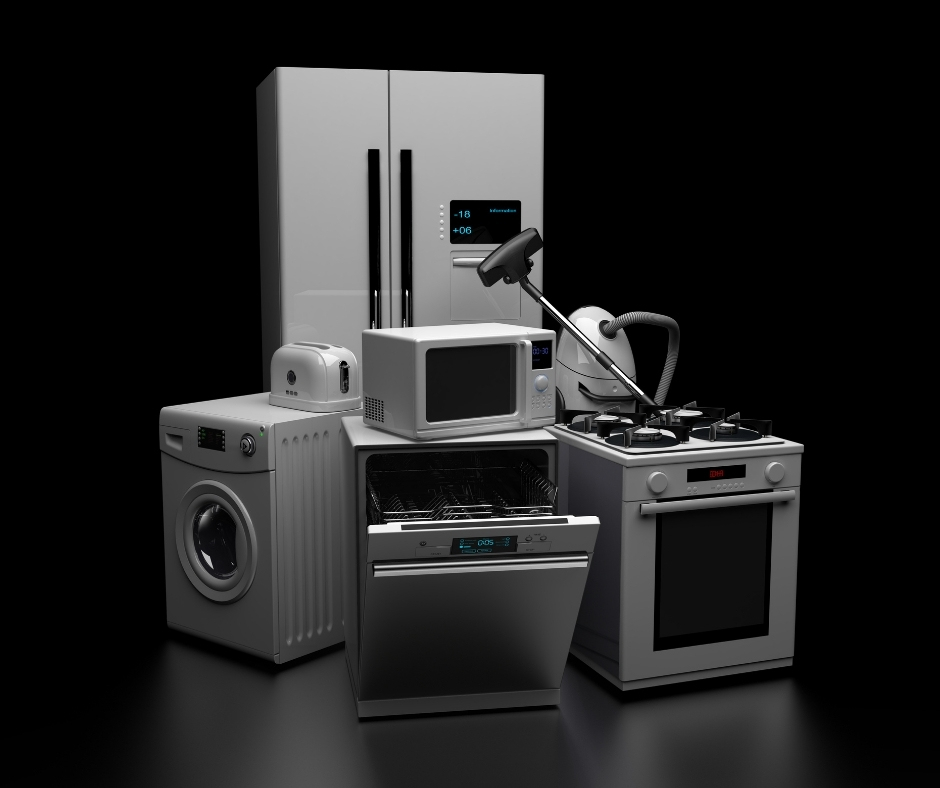Moving into your new apartment or home in Japan and needing essential appliances like a fridge, washing machine, or oven? You’d be surprised that some of these big-ticket items are quite different in Japan compared to other countries.

An appliance you might not be acquainted with
If you come from a western country, you might wonder why rice cookers take up rows of space at an appliance store in Japan. There’s more to this appliance than meets the eye.
Did you know that rice cookers can create magic from rice and other ingredients? For example, we can make instant paella, kamameshi (kettle rice), risotto, mac and cheese, cakes, and pancakes using a rice cooker. So even if you don’t eat rice regularly, you might consider adding a rice cooker to your kitchen after a quick search online of “rice cooker recipes.”

Let’s talk ovens
Coming from a family who loves to cook, a full-sized oven is a must-have kitchen appliance in our home. Whenever we transferred, we always ensured our trusty oven had a special throne in our kitchen because the stove area is the center point of the kitchen layout.
We were then disheartened to find out how tiny ovens are in Japan. At first, my husband and I, both chefs, were alarmed to see the flimsy pull-out grill under our stove burner. “Is this the oven?” we asked in shock as we were used to having the oven in that area.
Then after some research, we discovered that built-in ovens are almost non-existent in typical Japanese homes. There goes our grilling chicken or baking lasagna good for 15 people in one go. After finding out about the all-in-one countertop oven in Japan, we knew we had to conduct proper research to make sure we could still get the most out of an appliance that can microwave, bake, grill, defrost, and more.

When deciding on a particular oven for your home, you will need to consider a few things. First, the size of your kitchen because these appliances can get bulky. Second, the function or features. As mentioned earlier, top-end ovens can grill, steam, microwave, bake, roast, and more. This means the only other kitchen appliance you’ll need is a toaster (although a few brands offer even this), thus saving you space in the long run.
Fortunately, differentiating the functions between ovens is easy because manufacturers clearly mention their products’ capabilities, so you can easily match them with your expectations. In the end, we settled for Balmuda The Range. Surprisingly, this sleek and simple-looking appliance could handle our demands, and we especially like the automatic feature wherein you leave a microwaveable container inside, and the device decides how long to heat it.

Other essentials you might need
If you are unable to open your windows on a daily basis or deal with respiratory allergies, it’s recommended to purchase an air purifier, dehumidifier, and humidifier to keep up with the changing seasons and ensure that indoor pollutants don’t have a chance to circulate. These devices come in all shapes and sizes and are readily available in most appliance stores.
Another essential home appliance is your washing machine unless you prefer doing laundry at a coin laundry or laundromat. Stepping into the washing machine aisle at any store, you might soon realize the huge price gap between models. You can get a medium-sized washing machine for ¥50,000 and also ¥300,000. But they do the same thing, right, as in, wash clothes?
That’s what I asked at first until I listened to the salesman explaining all the fantastic features of the high-end ones. Furthermore, you can save up to 30 percent on electricity bills with more expensive models due to their high energy efficiency. Most also leave your clothes almost dry and can function with hot water, thus destroying the remaining bacteria that your detergent can’t handle. You basically pay more to get more, not to mention the savings in the long run. Of course, this is only applicable if you plan on staying in Japan for an extended period.

Where to buy appliances
BIC Camera, Yodabashi Camera, KS Denki, Yamada Denki, and Tokyu Hands are some of the biggest appliance stores in Japan, wherein you can find all your appliance necessities in one venue. They often run promotions such as getting a discount if you use a credit card or buy items as a set. For example, getting the bare necessities of a washing machine, fridge, and microwave might be cheaper purchased together. These shops also have membership point cards where you can accumulate points that are good as cash or get even more discounts.
If you’re already in Nitori buying home essentials, you can also head over to its appliance section because the store sells washing machines, microwaves, induction cookers, and more, albeit not from leading brands most are acquainted with. Another shop with the “all-in-one” theme is most big Don Quixote outlets.

Then you have second-hand shops if you’re on a budget or don’t want to splurge on temporary accommodation. They’re often called recycle shops, and there you can find pre-loved home necessities. If you prefer to go online shopping, check out Tokyo Sayonara Sale Facebook groups for used items being sold or Mottainai Japan for items being given away. To cut down your time scrolling through listings, you can also post the items you’re looking for, and people will usually comment with what they’re offering.
Lastly, you have the option of renting out your appliances for your stay in the country. Check out Tokyo Lease Corporation, which offers a variety of appliances and furniture (and comes with English-speaking staff) for you to lease. This service is all about convenience because you can specify when to return the items, and you don’t need to schedule for them to be thrown out or process the transfer to a new owner.
If you enjoy shopping for home essentials, you pretty much get the same feel when doing so in Japan, even though the labels are in a different language. What’s more, you can choose items that cater to your requirements, such as space, features and functions, and duration of use. Happy shopping!



